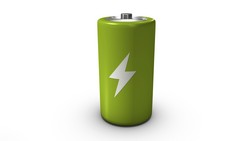Greener lithium-ion batteries for electric cars
Rising competition from Asian countries is squeezing the profitability and viability of numerous important sectors of the EU, including the battery industry. The only way Europe can remain competitive is to spark new breakthroughs that will render batteries greener and more cost efficient and durable. Thanks to improvement of cell materials and components, optimised module design as well as advanced production methods , the EU-funded project GREENLION(opens in new window) (Advanced manufacturing processes for low cost greener Li-ion batteries) succeeded in reducing cost while at the same time expand environmental compatibility of Lithium-Ion batteries without decreasing performance characteristics like safety or energy density compared to state of the art cells. All project objectives were met across the board, with noteworthy milestones including: Technology to manufacture aqueous-based electrodes and avoid the use of organic solvents was developed; More than 150 20Ah cells using technologies developed in the project have been manufactured; An eco-designed battery pack was created, featuring easier removal for future cell reuse or recycling, including a virtual design of an automated assembly line; Following automotive design criteria, a total of six fully functional battery modules were assembled from batteries and electronics developed in the project; An analysis of the complete battery life cycle was carried out which demonstrates the lowest possible environmental impact of the manufacturing technologies and processes employed. Li-ion battery technology is the key to electric vehicle success. Altogether, the improvements researchers made should allow higher energy efficiency and considerable reductions in battery production costs. These will in turn ensure that European competitiveness relies on developing new technological processes rather than only optimising mass production.







